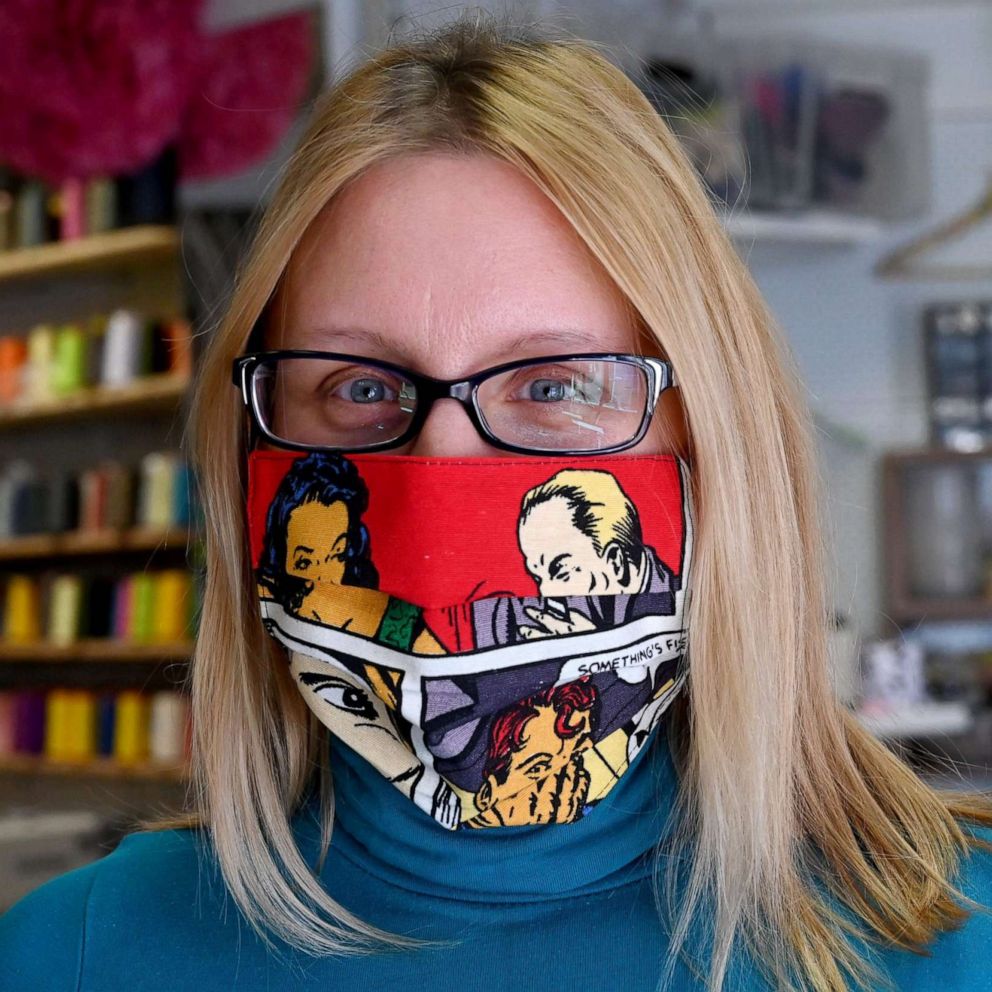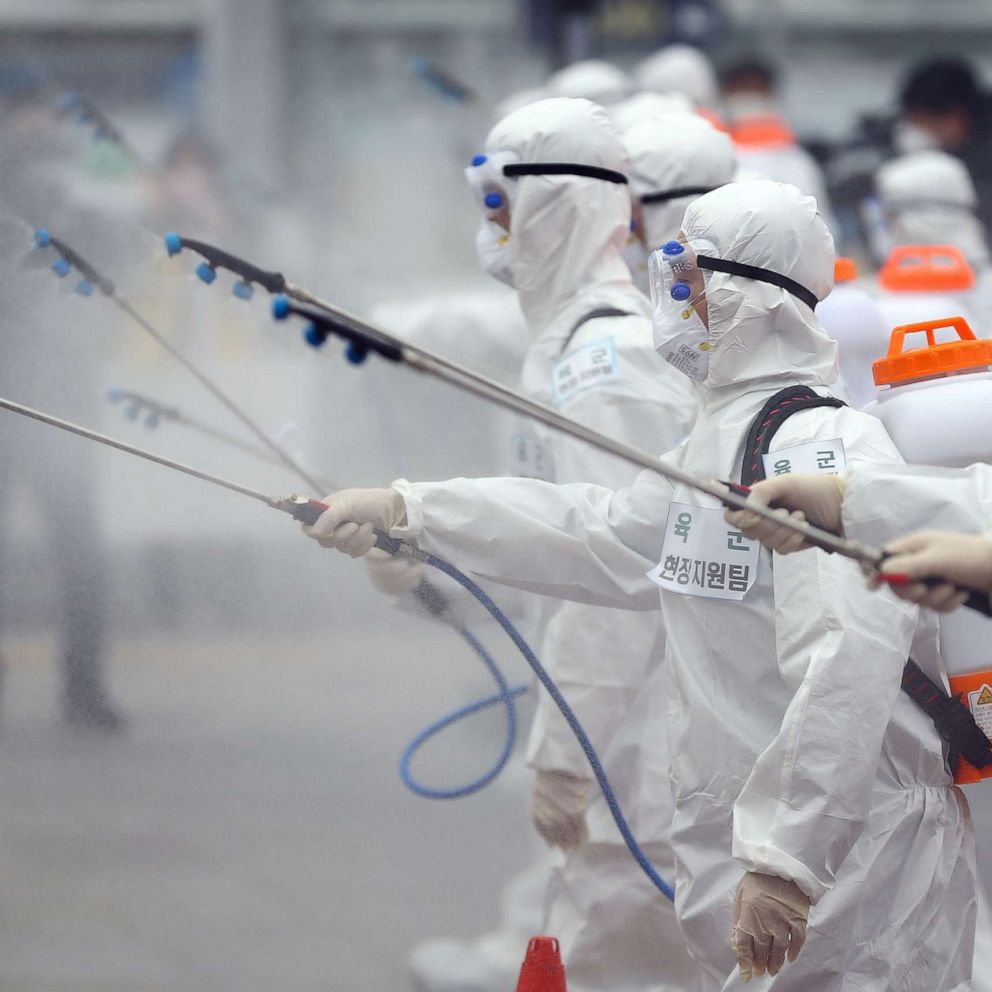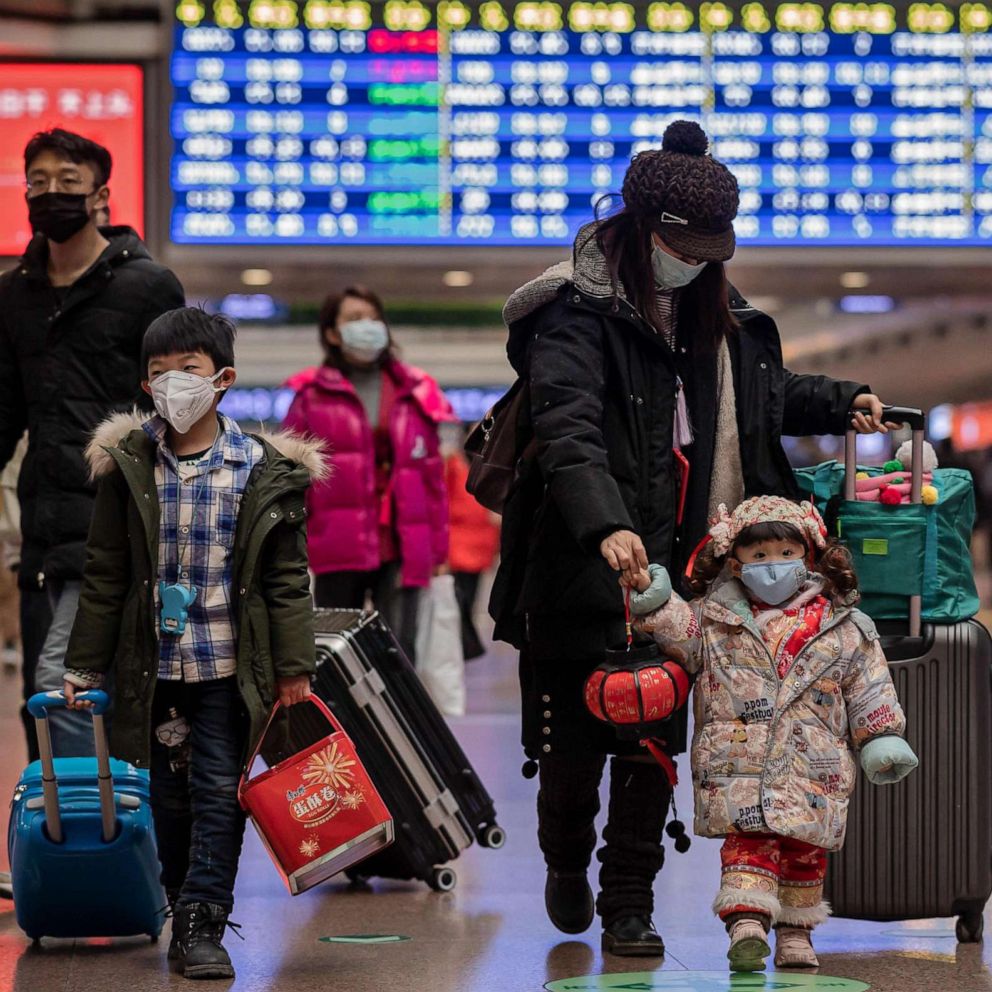Coronavirus government response updates: Trump continues to resist calling for nationwide stay-at-home restrictions
He said he was looking at stopping flights between "hot spot" cities.
President Donald Trump and his top health officials warned Americans to brace for a "very painful" few weeks ahead as they delivered their projection Tuesday that between 100,000 and 240,000 Americans will die of the novel coronavirus, even if social distancing measures are strictly followed.
Far from the president’s vision just last week of "packed churches" on Easter, a grim-faced Trump now says that 100,000 lives lost is a "very low number" in comparison to a 2.2 million projection if nothing had been done.
After comparing COVID-19 to the flu and downplaying its contagious nature for weeks -- insisting Americans wanted to get back to work -- Trump faces questions Wednesday on how the curve might look now had the federal government responded sooner -- and on whether nationwide restrictions should be enacted as governors seek guidance.
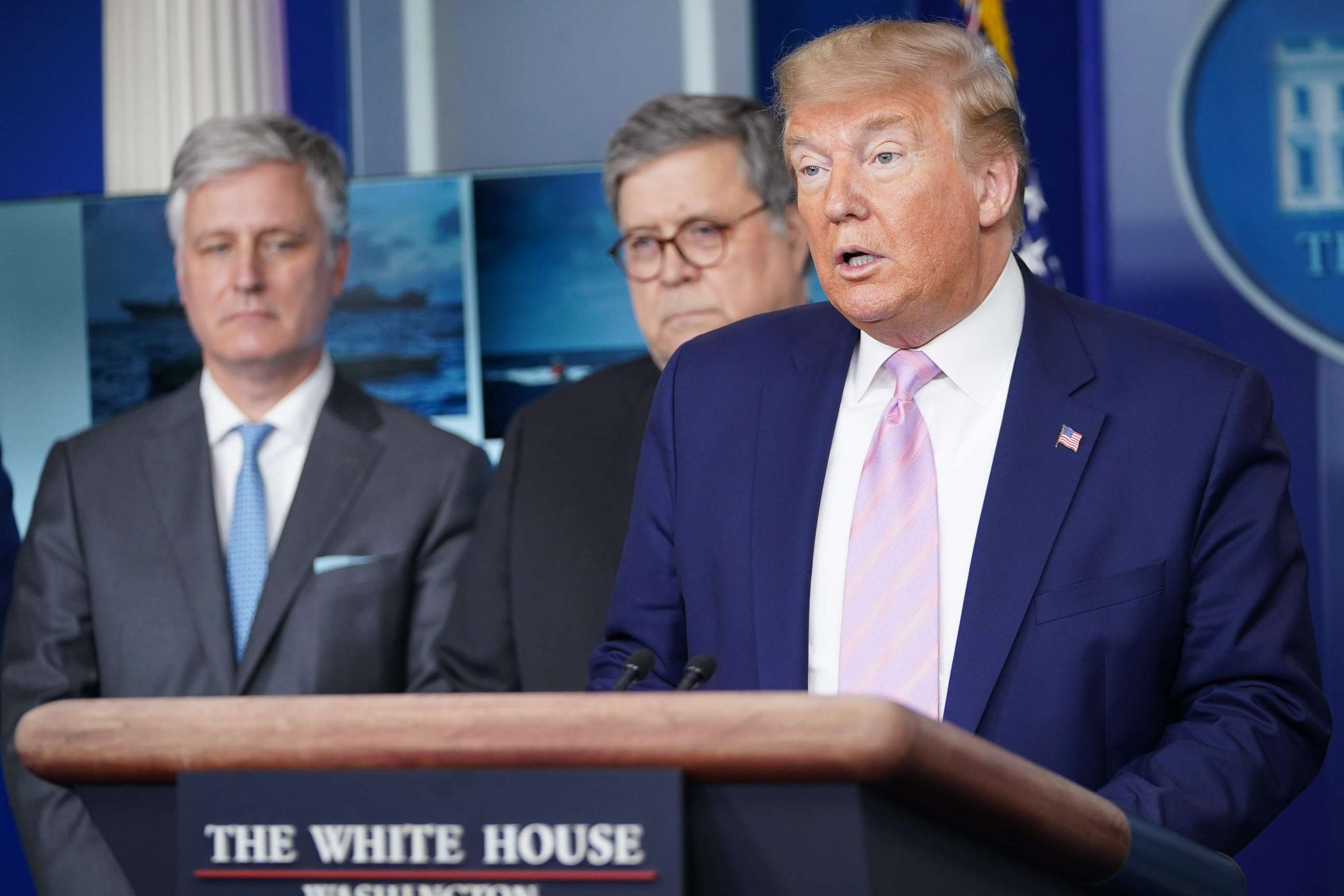
Tune into ABC at 1 p.m. ET and ABC News Live at 4 p.m. ET every weekday for special coverage of the novel coronavirus with the full ABC News team, including the latest news, context and analysis.
Here are Wednesday’s most significant developments in Washington:
- Trump warns Americans of "very painful" two weeks ahead as apex approaches
- Fauci and Birx say 100,000 to 240,000 are projected to die even with social distancing measures
- It’s the first day of the White House's extended social distancing guidelines through the month of April
- Trump participates in a phone call with military families on COVID-19 response at 2:30 p.m.
- He says medical equipment is being sent directly to hospitals, not the national stockpile
Here are the latest developments in the government response:
Trump rejects calls for nationwide stay-at-home restrictions
To open the daily coronavirus task force briefing at the White House, President Donald Trump first brought forward several top officials and military officers who praised the president’s response to COVID-19 and then outlined what the administration is doing to combat what the president claimed was the danger of drug trafficking and illegal narcotics amid the pandemic.
“As governments and nations focus on the coronavirus, there’s a growing threat that cartels, criminals, terrorists, and other malign actors will try to exploit the situation for their own gain,” Trump said. “We will never let that happen.”
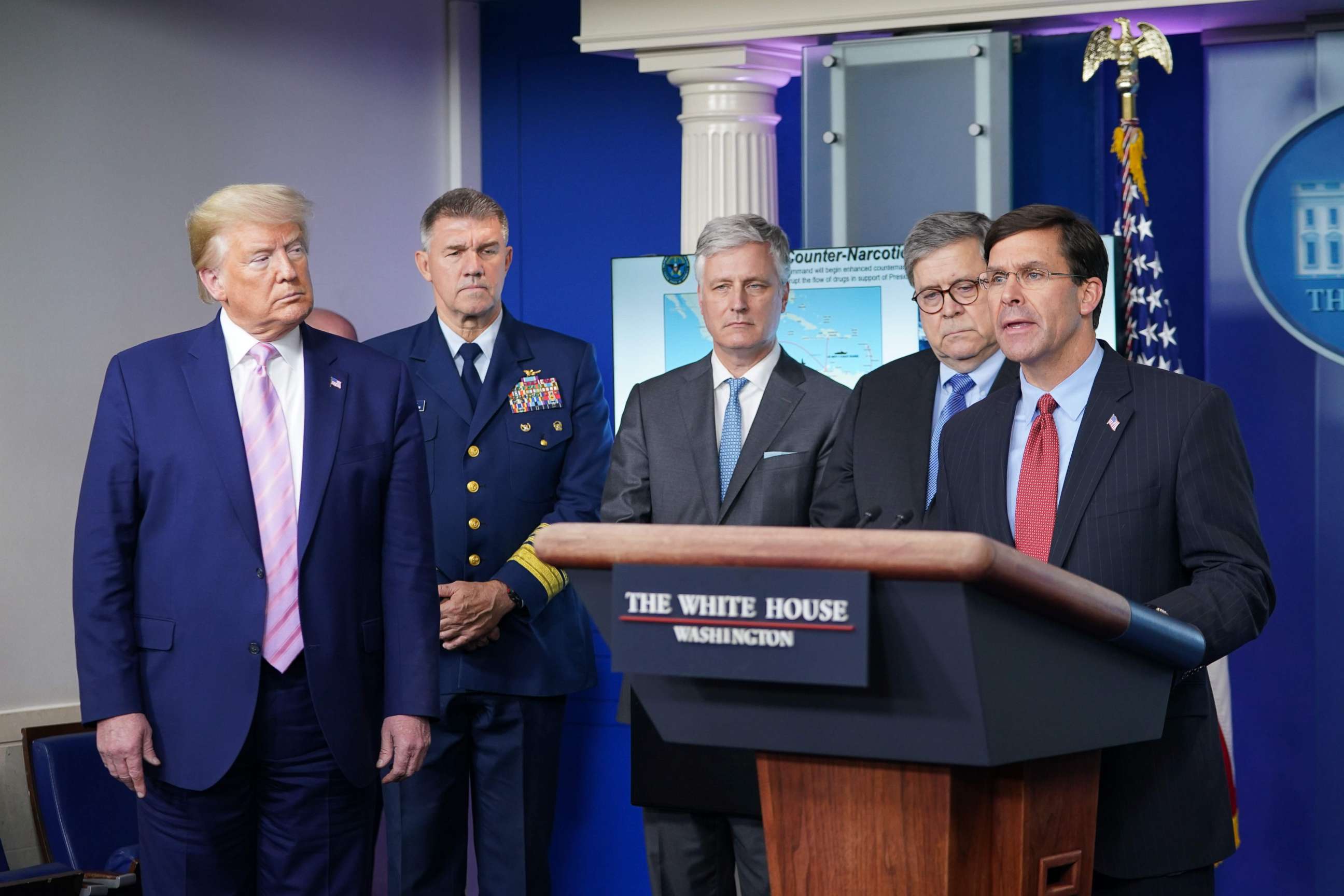
He was joined by Defense Secretary Mark Esper, Attorney General William Barr and National Security Adviser Robert O'Brien.
Pivoting to talk about coronavirus about an hour after the briefing was expected to begin, Trump spoke of the huge need for supplies and the efforts the federal government was taking.
"Every day new plane loads are landing in cities such as New York, Miami, Chicago, Los Angeles. Additional flights have been scheduled and we are adding more and more," Trump said. "The amount of usage, the amount of is something that nobody has ever seen before. We are getting so much, but no matter how much we get, we seem to use it up very quickly."
He said newly available medical equipment was being taken directly to hospital and not put in the national stockpile.
The president warned "starting pretty much now, but especially a few days from now, things are going to be horrific."
Asked about stopping flights between "hot spot" cities, including Detroit and New York City, Trump said that would be tough on the hard-hit airlines industry but then said, "We're looking at it very closely."
“It's very tough. You have them going from hot spot to hot spot. If you notice, they're usually hot spot to hot spot. Very few flights. New York to Miami, and we are thinking -- we are looking at it. Once you do that, you really are clamping down industry that is desperately in need,” Trump said.
When a reporter sought to clarify if the president was only considering limiting flights directly between hot spots or if it was broader than that, the president replied, “We are looking at the whole thing because we are getting into a position now where we want to do that---we have to do that. We're looking at the whole thing."
Trump has yet to issue a national "stay at home" order, instead leaving the decision up to the states. The president defended the decision not to implement an overarching order, saying states are all different.
"There are some states that are different. There are some states that don't have much of a problem. They don't have thousands of people that are positive," Trump said. "You have to look -- you have to give a little flexibility."
It's tough to tell states to "close it down," Trump said. The president has often prioritized economic impact as long as he could in making decisions about the disease.
Earlier in the day, Florida GOP Gov. Ron DeSantis issued a mandatory stay-at-home order for the state of Florida starting Thursday at midnight, after resisting calls for weeks and leaving state beaches open amid criticism. DeSantis has previously said that if the White House task force had recommended a statewide order, "that's something that would carry a lot of weight with me." He said today he had talked about doing so with the White House and Trump.
Trump said he would "absolutely" speak with former Vice President Joe Biden about the coronavirus response, after the Democratic front-runner's campaign released an earlier statement saying that Biden would like to talk to the president.
"If he would like to call, I'd absolutely take his call," Trump said, adding that he always found Biden to be "a nice guy."
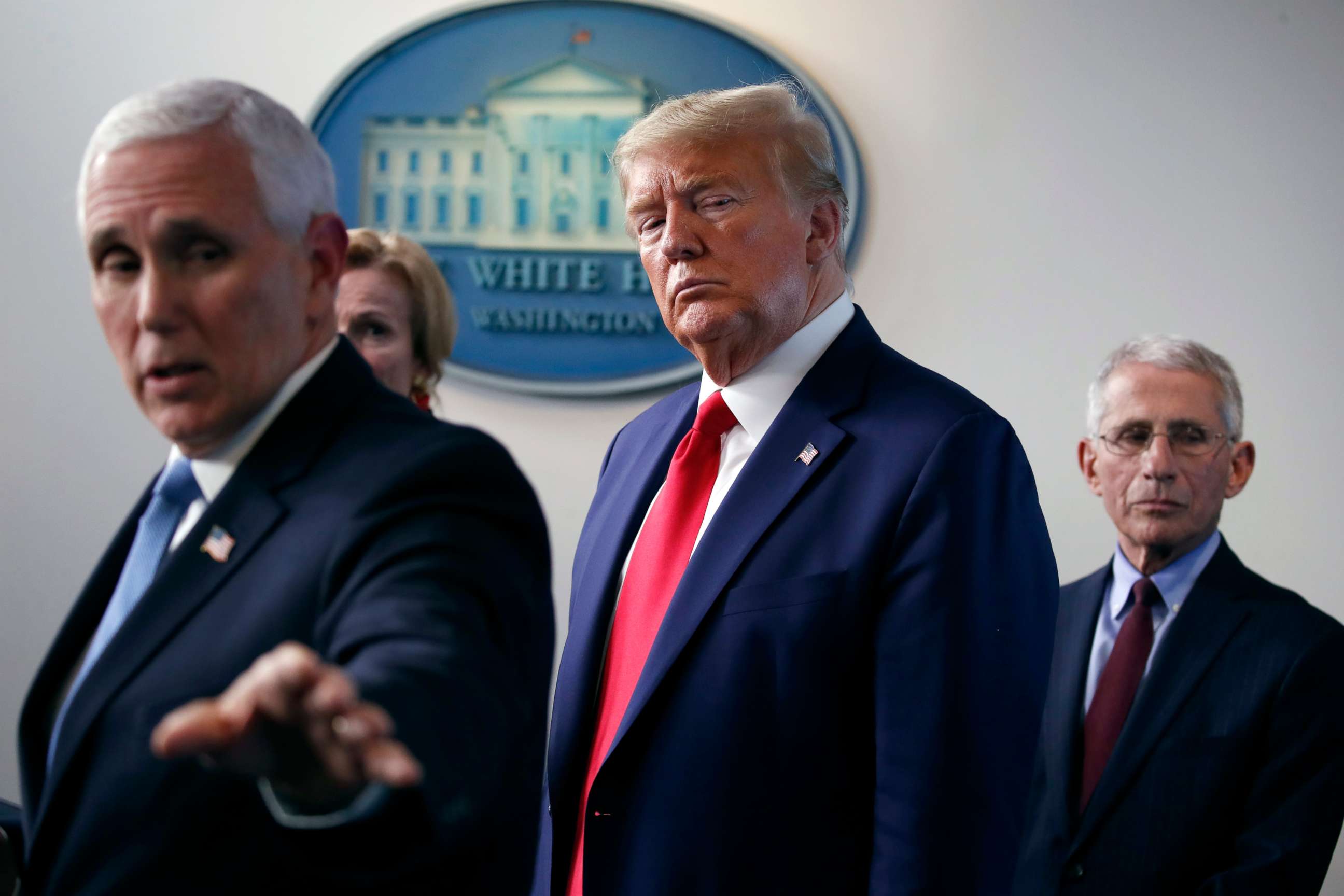
FBI academy suspends classes due to COVID-19
While the FBI and other law enforcement agencies continue to insist their security posture has not been hindered by the spread of coronavirus, the crisis has now led to a temporary pause in training classes for the bureau’s next generation of leaders at the FBI Academy in Quantico, Virginia.
"In consultation with our Chief Medical Officer and executive leadership, training classes at the FBI Academy have been suspended temporarily," the FBI said in a statement. "We will continually evaluate the suspension and remain prepared to resume training when safe and appropriate as recommended by our chief medical officer."
One source familiar told ABC News that one reason for the suspension in classes is "because law enforcement leaders are needed where they serve," a reference to the academy’s instructors.
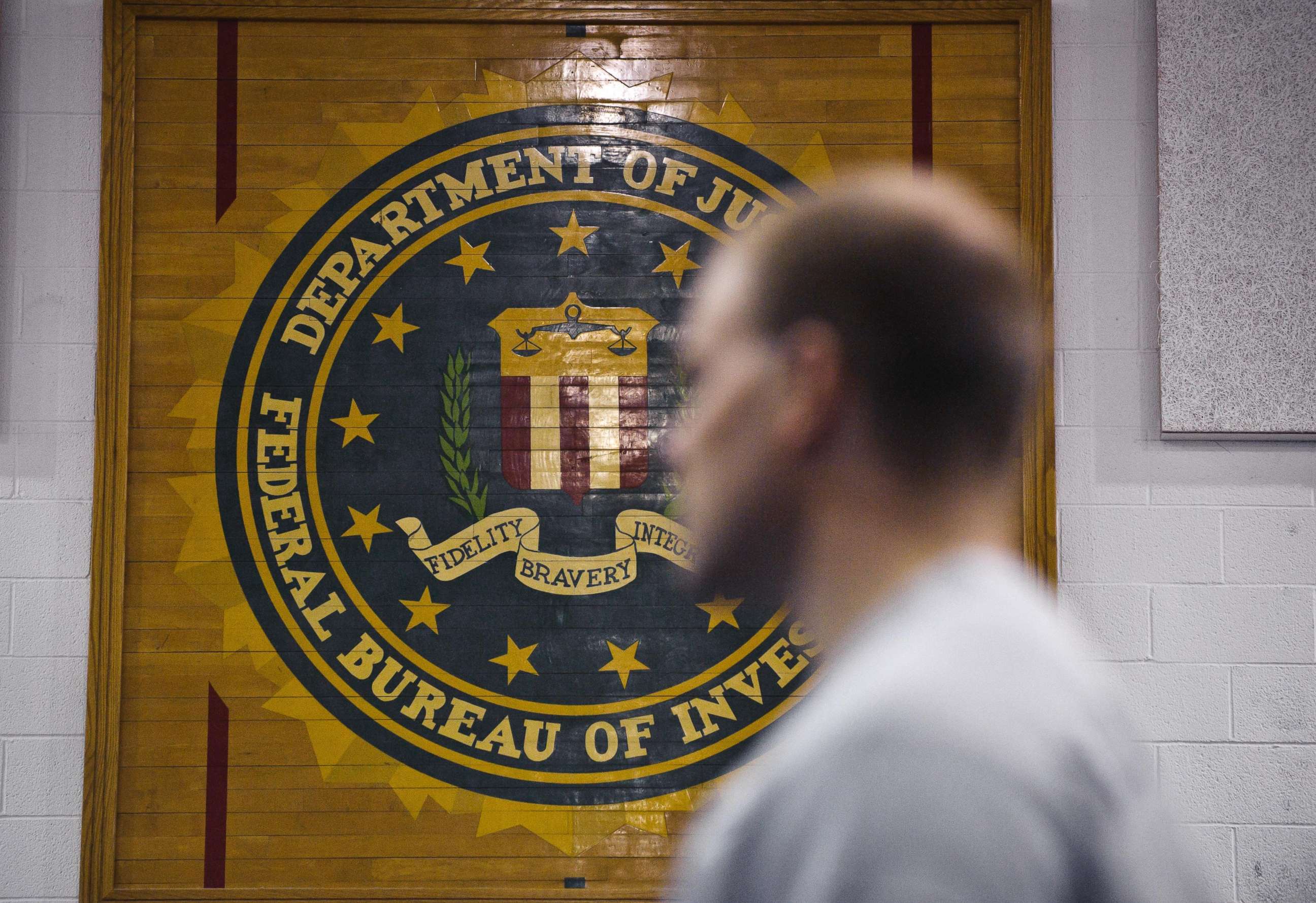
Surgeon General: 'Even if you do wear a mask, it can’t be at the expense of social distancing'
Surgeon General Jerome Adams acknowledged Wednesday that the extension of the nationwide social distancing guidelines through April may not be enough time to slow the spread of the novel coronavirus in some areas, "depending on where they are on the curve."
"We're looking at this next 30 days as an opportunity for the entire country to really understand if we do the right things, then we can flatten our curve in our own different areas and actually get to the other side," Adams told ABC News’ "Good Morning America."
He also explained that data from California, Washington state, and elsewhere made clear that it is possible to flatten a curve.
"If you are aggressive about mitigation, you can get through to the other side and usually in about three weeks or so to hit your peak and start to see cases come down," he said, noting the most important thing people can do is stay home.
Adams confirmed the federal government has "asked the CDC to take another look at whether or not having more people wear masks will prevent transmission of the disease to other people," while stressing the general public should not wear N95 masks.
"If you take one of those N95 masks, you may be taking it out of the hands of a health care worker who desperately needs it to care for patients," he added.
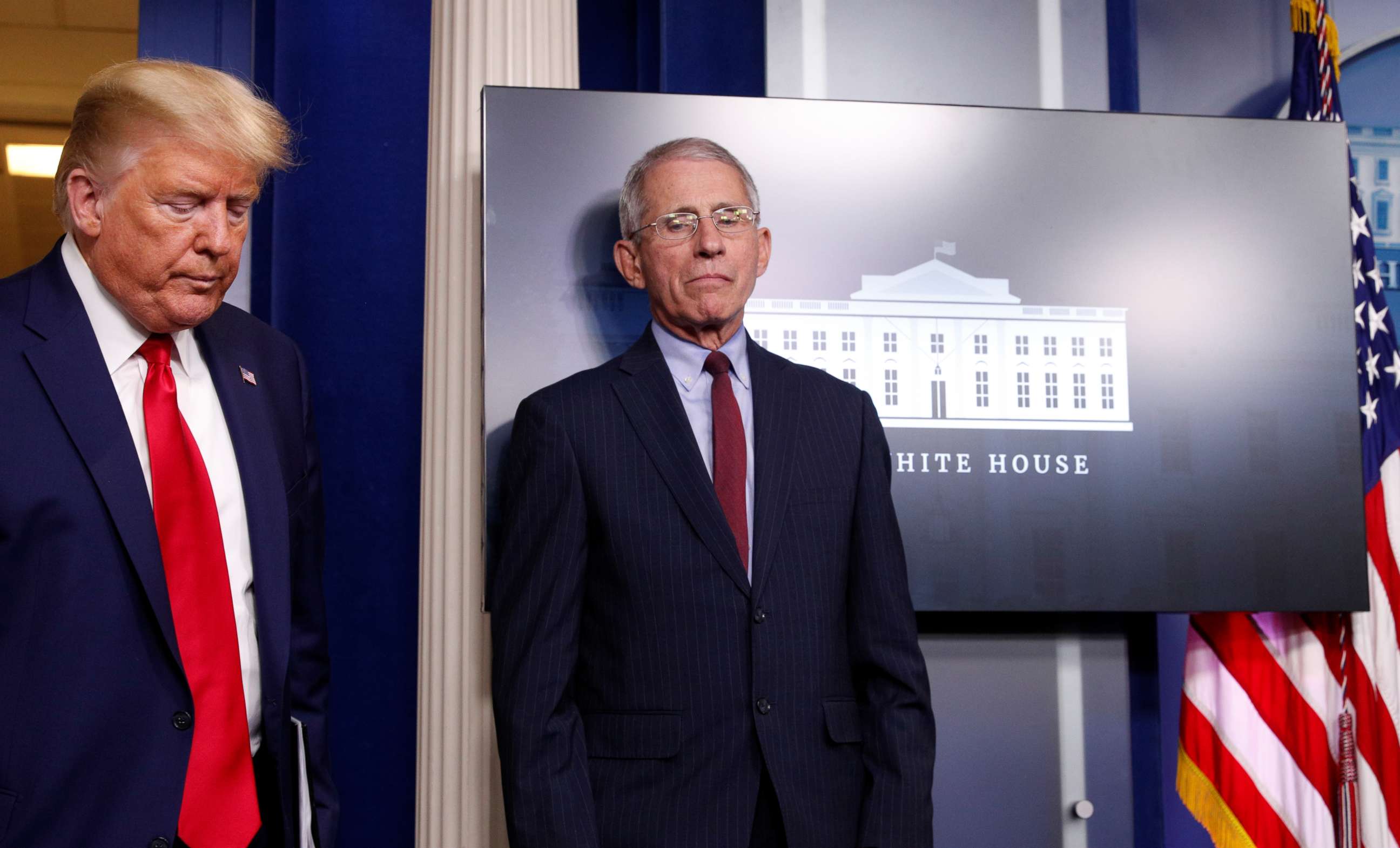
Asked if states that have not issued stay-at-home orders, like Florida, needed to be stricter, Adams said it was up to the governors but that states should provide people with "social support so that they can do the right things."
"We trust the governors and the mayors to understand their people and understand whether or not they feel like they can trust the people in their states to make the right decisions," he said.
What to know about coronavirus:
- How it started and how to protect yourself: coronavirus explained
- What to do if you have symptoms: coronavirus symptoms
- Tracking the spread in the US and Worldwide: coronavirus map
ABC News’ Ben Gittleson, Jordyn Phelps and Alexander Mallin contributed to this report.
